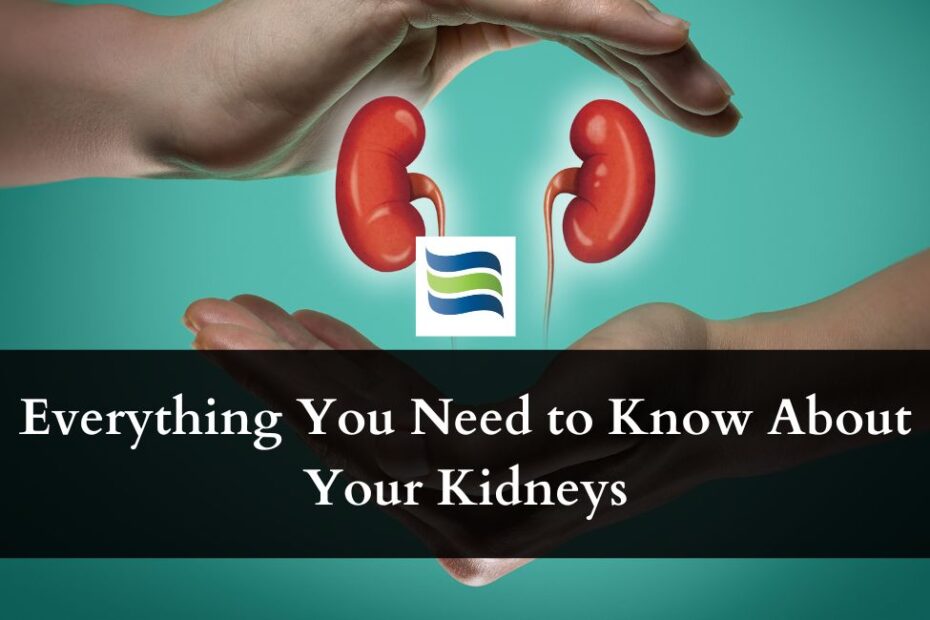Kidneys. You know what they are and that you have them. But what exactly do they do? How do they contribute to your body’s function? And what happens if something goes wrong with one (or both) of them?
We are going to break down everything you need to know about your kidneys so you can both better appreciate these amazing organs and be sure to take excellent care of them!
Where are the kidneys?
Your kidneys are bean-shaped and about the size of your fist. They are situated on either side of your spine, just below your rib cage. Each kidney is attached to a ureter that leads down to the bladder. They are key players in the urinary system.
What is their function?
The kidneys are each made up of about a million tiny filters called nephrons. These nephrons are made up of two parts: the glomerulus and a tubule. The glomerulus works as the filter for your blood, and the tubule removes the filtered waste and returns the needed substances back into your blood.
Why does all of this matter? The kidneys remove waste and excess fluid from your body as well as acid that is produced by your body’s cells. In doing so, they help your body keep a healthy balance of water, salts, and minerals. Without this healthy balance, your whole body could suffer. Your nerves, muscles, and other tissues depend on your kidneys to function properly.
Additionally, your kidneys produce hormones that contribute to healthy blood pressure, strong bones, and the making of red blood cells among other things.
Common kidney ailments
Kidney Disease
Kidney disease occurs when the kidneys no long function properly. This is a long-term condition that is often caused by chronic high blood pressure. The force of the blood through the glomeruli will eventually wear them out and damage them, rendering the kidneys less and less effective. This can result in the need for dialysis.
Chronic kidney disease can be treated but cannot be cured. Acute kidney failure, however, can be treated and cured with proper care.
The symptoms of kidney disease include:
- fatigue
- difficulty concentrating
- muscle cramps
- frequent urination (especially at night)
- poor appetite
- dry, scaly skin
- puffy eyes in the morning
- swollen feet and/or ankles
Kidney Stones
Kidney stones are formed when urine has higher levels of minerals and salts than it should. The excess minerals and salts clump together, creating stones that could grow larger over time. Sometimes these stones will hang out in your kidney unnoticed. Sometimes they may even pass through your urine without incident. But when one of those little boogers attempts to make its way down the ureter and it doesn’t quite fit… well, it can be quite painful.
Urinary Tract Infection
A UTI is an infection in any area of the urinary tract. This includes your kidneys, ureters, bladder, and urethra. The infection is a result of bacteria entering the urethra and spreading to the bladder. Eventually it can spread into the kidneys and could be dangerous.
The symptoms include:
- Urethra: burning urination and discharge
- Bladder: frequent and/or bloody urination, pelvic pressure, pain in the lower abdomen
- Kidneys: high fever with chills, nausea, vomiting, upper back and side pain
How to take care of your kidneys
The best way to care for your kidneys is to care for your body as a whole. Eat healthy, exercise regularly, quit smoking, and maintain a healthy weight. It is also important to pay attention to how you’re feeling and visit your urologist right away if you notice any possible symptoms of kidney issues. The earlier an issue is detected and treated, the better!
Read More: Everything You Need to Know About Adrenal Glands
